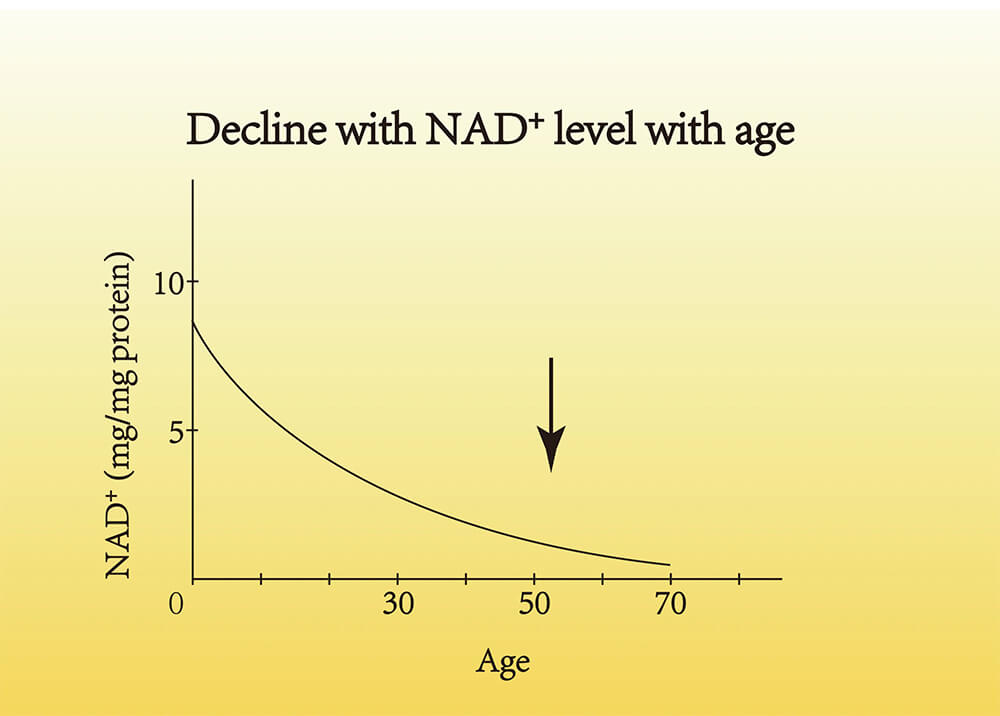BOOST Premium NMN 99%+
Use 99% + ultrapure NMN and high quality enteric capsules,…
NMN is short for β-Nicotinamide Mononucleotide and can be found in many natural foods. It is an endogenous substance in the body. NMN acts as the precursor of NAD+. And its role is reflected by the latter.
NAD+ is a biochemical substance with extensive functions. For instance, it can catalyze the generation of 95% of the energy and participate in over 50% of the metabolic activities in the body. Meanwhile, NAD+ decides the activity of Sirtuins, a protein that inhibits aging. Therefore, NAD+ plays a vital role in stress resistance, cytometaplasia, and apoptosis of cells.
Currently, researches on NMN are being conducted globally. Besides the anti-aging function, NMN helps alleviate other diseases, so it has drawn wide attention.
NMN is the most direct precursor of NAD+. With age, the content of NAD+ in the body declines. Consequently, the communication between mitochondria and the cell nucleus will be affected. Many studies demonstrated that the decline of NAD+ hinders energy generation of cells, which may result in aging and many diseases.
Over the past three to four years, Science, Nature, and Cell, the most authoritative academic magazines internationally, have continuously published studies on humans and animals. It is proven that supplementing NMN can effectively raise and store the level of NAD+ in the body so as to repair DNAs, boost metabolism, raise the energy level, enhance cognitive function, maintain muscle growth, accelerate alcohol metabolism, significantly delay aging, prevent multiple neurodegenerative diseases like senile dementia, and fundamentally regulate and improve all symptoms of aging.
Other studies involving cancer, infertility, obesity, encephalorrhagia, cardiac failure, cardiac trauma, vascular aging, acute renal failure, and diabetes indicated that supplementing NMN is beneficial to medical treatment and health care.
Hence, sufficient NMN can maintain health and enhance longevity.

A medical paper published on PLOS ONE in 2012 pointed out that the average NAD+level of newborns is 8.54 (ng NAD+/mg protein), while the figure decreases to 2.74 among people at 30-50 years old and even to 1.08 among those at 51-70 years old.
It is suggested that people above 18 years old should start to supplement NMN. Older people should supplement NMN sooner.
NMN is the most direct precursor of NAD+. As limited by its big molecular volume, it is difficult for NAD+ to penetrate the cytomembrane to enter the cell. Hence, NAD+ cannot be absorbed directly. Instead, NAD+ can be raised by supplementing NMN. Though not a few natural foods contain NMN, the content is extremely low. Thus, it is hard to get sufficient NMN via the diet.
Multiple recent studies showed that NMN can be absorbed into the blood within 10min after oral administration. It will be absorbed by body organs and transform to NAD+ 30min later. Therefore, oral administration is a significant way to supplement NMN exogenously.
The dissolution of an average NMN capsule is unstable and subject to water temperature, which will probably cause unstable absorption or stimulate the digestive system. Additionally, gastric acid can easily damage the active ingredients of NMN and affect absorption. In contrast, the NMN enteric capsule has a better efficacy.

β-Nicotinamide Mononucleotide